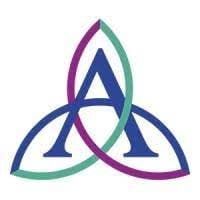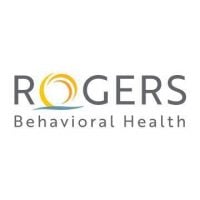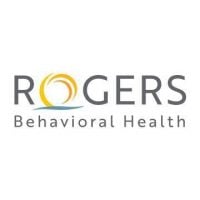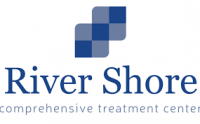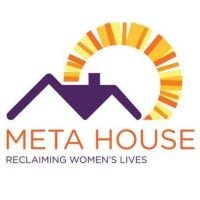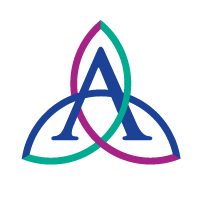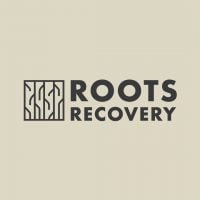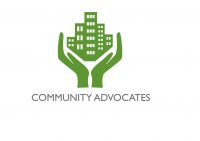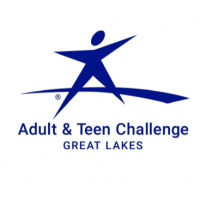Columbia Saint Marys Hospital - Outpatient
Drug Rehab Center in Thiensville, Wisconsin
Columbia Saint Marys Hospital - Outpatient is a nationally accredited facility that provides tailored addiction and mental health treatment, including drug rehab, intensive outpatient service, and aftercare programs, certified by the Joint Commission on Accreditation of Healthcare Organizations (JCAHO) and the Substance Abuse and Mental Health Services Administration (SAMHSA), and accepts private health insurance.
About This Wisconsin Facility
Columbia Saint Marys Hospital - Outpatient, situated in the tranquil town of Thiensville, Wisconsin, is a renowned treatment facility dedicated to helping individuals overcome the challenges of substance abuse and mental health disorders. With a rich history of providing compassionate care, this non-profit rehab center specializes in addressing a wide range of addictions, including alcoholism, opioid dependency, and drug abuse.
• Accredited by JCAHO and SAMHSA, ensuring adherence to the highest standards of patient care and safety.
• Holds a state license, demonstrating compliance with local regulations and guidelines.
• Offers a comprehensive range of treatment options, including aftercare support, drug rehab, intensive outpatient, and outpatient programs.
• Affiliated with Ascension - Wisconsin, leveraging a network of resources and expertise to enhance patient outcomes.
Columbia Saint Marys Hospital - Outpatient takes pride in its multiple certifications, including accreditations from the Joint Commission on Accreditation of Healthcare Organizations (JCAHO) and the Substance Abuse and Mental Health Services Administration (SAMHSA). These distinctions underscore the facility's unwavering commitment to delivering top-notch care and maintaining a safe, supportive environment for all patients.
Whether an individual is grappling with alcoholism, opioid addiction, dual diagnosis, or drug dependency, Columbia Saint Marys Hospital - Outpatient is well-equipped to provide targeted, evidence-based interventions. The facility's multidisciplinary team of experienced professionals works closely with each patient to develop a personalized treatment plan that addresses their unique needs and goals.
By offering a continuum of care that includes aftercare support, drug rehabilitation, intensive outpatient, and outpatient services, Columbia Saint Marys Hospital - Outpatient ensures that patients receive the appropriate level of support throughout their recovery journey. This comprehensive approach empowers individuals to build a strong foundation for long-term sobriety and improved mental well-being.
Genders
Ages
Modality
Additional
Accreditations
State License
SAMHSA

JCAHO
Conditions and Issues Treated
Many people who struggle with opioid addiction need to attend specific programs like methadone , Suboxone or Vivitrol clinics.
These types of programs will provide the patient with legal, prescription medications that can help them overcome their cravings for illegal opioids like heroin or fentanyl . If the patient has a chronic condition like Hepatitis C, they must undergo treatment before they can begin taking these medications.
Levels of Care Offered at Columbia Saint Marys Hospital - Outpatient
This center offers a variety of custom treatment tailored to individual recovery. Currently available are Aftercare Support, Drug Rehab, Intensive Outpatient, Outpatient, with additional therapies available as listed below.
Outpatient addiction treatment is beneficial for people who are able to function well in their day-to-day lives. It is recommended for people who are not yet ready to end their relationships with friends or family members who might be encouraging drug and alcohol use.
Intensive outpatient treatment is beneficial for:
- People who are able to attend treatment more than 3 times per week.
- People who do not meet the criteria for inpatient treatment.
- People who are able to contribute to their own recovery outside of the treatment center.
- People who are motivated towards recovery.
- People who are able to overcome addiction on their own without the need for higher levels of care.
Outpatient treatment programs provide drug and alcohol addiction treatment through individual sessions with a counselor, group therapy, 12-step meetings, and other activities to help individuals gain sober living skills. Most programs are designed for those individuals who have completed a medically supervised detoxification program and provide opportunities for clients to begin the process of early recovery.
Outpatient programs also offer a level of medical support as needed and psychological backing through therapy. Clients are encouraged to live at home, though there may be some flexibility regarding this requirement based on the circumstances and needs of each patient.
Outpatient treatment is perhaps the most common type of dual diagnosis program available. It does not pose a significant financial burden on patients. However, it is essential to note that outpatient treatment does not provide the support and supervision given in residential programs. Some addicts may need this level of support to maintain their sobriety.
People who have completed a rehab program often need continued support from the addiction treatment team in order to remain abstinent from drugs and alcohol. Aftercare can be beneficial for personal, social, and emotional growth.
Common aftercare options include:
- Individual Therapy – this type of addiction counseling is available on a one-on-one basis. This can be beneficial for people with a high degree of emotional turmoil and a strong desire to overcome addiction.
- Group Therapy – this type of addiction counseling is available in a group setting. This type of treatment can be beneficial for people who are unable to attend regular therapy appointments due to other responsibilities.
- Family Therapy – this type of addiction counseling is available to the family members of addicts. This can be beneficial for people who are unable to fully comprehend what their loved ones are experiencing due to addiction.
Therapies & Programs
Therapy sessions focused on the individual addict can provide much-needed guidance as they work toward overcoming their addiction. These types of sessions typically involve guidance from a therapist, who will help addicts identify and process their feelings and cravings.
During these sessions, addicts may develop plans for coping with the triggers that typically lead to relapse and learn how to avoid those triggers during their recovery process.
If you are looking for drug recovery, couples therapy can be a great option. This type of therapy can help rebuild trust and joy in relationships that may have been damaged by addiction. It can also help reduce the dysfunctional behavior in a relationship that may trigger addiction. A patient’s partner will be involved in the process. They can also benefit from therapy, especially if they are trying to live with an addict.
The main goal of family therapy for drug addiction is to create an environment where communication can occur without judgment, hostility, or blame that often occurs within a family.
Family therapy is a type of group problem-solving that aims to improve communication and relationships between the patient, their family, and sometimes friends. The therapist is with the family as they learn to communicate with each other differently, especially with the addict when s/he is using.
The family can learn to reduce their enabling behavior or rally together and support each other during tough times. The patient also learns how to deal with their addiction and maintain sobriety while interacting with the family.
Different types of addiction treatment services are available. Within this article, group therapy is of interest due to its high success rate compared to individual therapy. Group therapy settings are beneficial because they allow recovering addicts to build a strong support network.
Benefits of group therapy are:
- Reduces feelings of isolation
- Immediate access to social support in the form of fellow addicts in recovery
- Lowers risk of relapse
- Increases rate of sobriety
- Builds coping skills that can be applied to everyday life
Cognitive Behavioral Therapy (CBT) is used by drug treatment centers to help addicts comprehend the causes of their substance abuse and the consequences that follow. Through CBT, clients learn to recognize and avoid high-risk situations and cope with challenging situations when they arise.
CBT treatment often includes a combination of individual therapy, group therapy, lectures, and other activities. The treatment’s goal is to help addicts gain self-control and maintain abstinence from drugs and alcohol over the long term so that an addict can get sober and lead a more productive life.
CBT is particularly effective in helping people overcome their drug problems, especially people whose drug abuse is motivated by self-defeating beliefs and emotions.
Payment Options Accepted
For specific insurance or payment methods please contact us.
Is your insurance accepted?
Ask an expert, call (888) 674-0062
Additional Details
Specifics, location, and helpful extra information.
Thiensville, Wisconsin 53092 Phone Number(262) 243-6127 Meta DetailsUpdated April 15, 2024
Staff Verified
Patient Reviews
There are no reviews yet. Be the first one to write one.
Thiensville, Wisconsin Addiction Information
Wisconsin has some of the highest rates in the United States for both adolescent and adult substance abuse. Since 2009, the state has been experiencing the same escalating rates of drug abuse and addiction as the rest of the country. The major concerns are the misuse of prescription painkillers and the escalating number of deaths due to alcohol-related liver disease.
The number of overdose deaths involving opioids in Thiensville, WI has increased by 40%. Methamphetamine, cocaine, heroin, prescription opioids, and marijuana are commonly abused. The effects of drug addiction and abuse can be devastating for both the individual and their loved ones. Less than 10% of people with a substance abuse disorder receive treatment. If you are struggling with addiction, it's important to get help as soon as possible.
Treatment in Nearby Cities
- Monroe, WI (96.6 mi.)
- Shawano, WI (113.3 mi.)
- Slinger, WI (19.7 mi.)
- Kiel, WI (48.2 mi.)
- Bowler, WI (125.2 mi.)
Centers near Columbia Saint Marys Hospital - Outpatient
The facility name, logo and brand are the property and registered trademarks of Columbia Saint Marys Hospital - Outpatient, and are being used for identification and informational purposes only. Use of these names, logos and brands shall not imply endorsement. RehabNow.org is not affiliated with or sponsored by Columbia Saint Marys Hospital - Outpatient.
